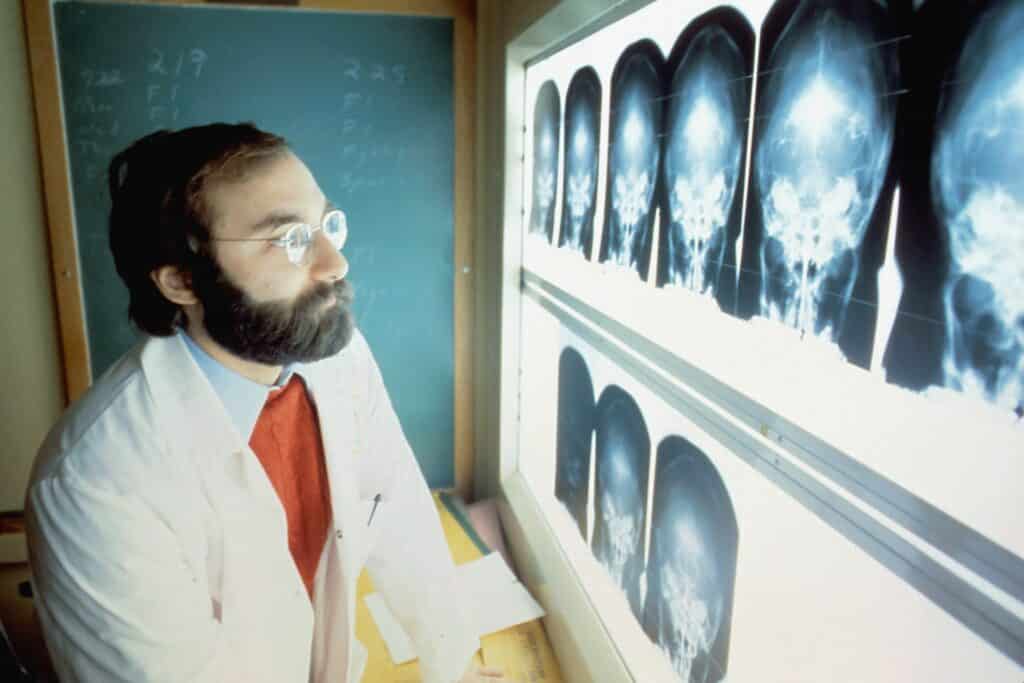Functional Neurological Disorder
Functional Neurological Disorder (FND) is also known as conversion disorder or functional neurologic symptom disorder.
This is part of a group of common neurological movement disorders usually caused by abnormalities in brain functions. There is no significant structural damage to the brain due to FND.
Functional Neurological Disorder (FND) may coexist with other neurological disorders, but it is a distinct condition characterized by symptoms. Research studies are being conducted to find the exact cause of FND in adults.
A person suffering from FND is simply unable to function at the moment but can perform normally at other times. In this situation, the patient’s brain cannot send and receive signals properly.
There is a disconnection in the lobe functions and emotional processing. This condition can also affect the processing of sensations, cognition, memory, and concentration.
What are the Signs and Symptoms of Functional Neurological Disorder?

There are two main categories of functional neurological disorders, namely psychogenic non-epileptic seizures and functional movement disorders. FND can develop into one of many kinds, including a varied mix and a range of neurologic symptoms and disorders.
The duration and severity of FND symptoms can vary widely among patients, with some experiencing symptoms transiently and others having persistent symptoms that may last for years.
Psychogenic non-epileptic seizures (PNES) mimic epileptic seizures in the brain. They are considered psychological in origin.
You may experience frequent episodes of movement, behavior and sensation dysfunction following an epileptic seizure. It may also cause temporary loss of concentration or memory lapse.
Confusion and loss of consciousness without shaking or tremors are also normally seen in such cases. It is commonly reported that patients often feel dissociated with their surroundings, thoughts and emotions during this type of seizure.
PNES can develop due to stress-related, psychological or emotional reactions to a situation that induces an inability to cope with a sudden or past traumatic event. This disorder usually affects women, especially during early adulthood.
This disorder may result in frequent and prolonged seizures, too. Adequate treatment methods can help to treat PNES completely or reduce its frequency.
Functional movement disorder (motor FND) is another neurological disorder that affects the movement functions of the body. Some of the most common signs and symptoms of motor FND include:
- Tremors
- Leg and arm weakness or paralysis
- Problems with walking, balance and posture
- Sudden, short and involuntary jerking or twitching of a group of muscles
- Involuntary muscle contractions that develop into slow repetitive motions or result in abnormal posture
- Tics
- Stiffness of muscles
- Spasms and contractures of tendons
- Speech problems, such as stuttering or trouble speaking
- Pain, including chronic migraine
- Problems with vision and hearing
- Extreme fatigue or slowness
- Inability to sense touch or numbness
Who is Prone to Developing Functional Neurological Disorders
As the causes of this disorder are unknown, health experts say that anyone can develop a functional neurological disorder. The incidence rate of FND is higher, with studies suggesting a range from 4 to 12 cases per 100,000 people annually, but prevalence rates in general populations can be much higher.
Research studies show that potential causes may involve biological and sociological factors. Some of these factors can combine to trigger FND episodes in a person.
Studies have shown that women are more prone to develop FND, especially those who have experienced sexual trauma previously. Functional Neurological Disorder can occur in children under 10 years of age, though it may be less common than in adolescents and adults.
However, there seems to be a strong connection between anxiety, depression, early life trauma and dysfunctional family life and the development of FND.
How is Functional Neurological Disorder diagnosed?
Diagnosis of Functional Neurological Disorder is based on clinical assessment and excluding other neurological conditions, rather than a specific test, following established diagnostic criteria. Doctors will usually evaluate your health, and medical family history to check for any underlying neurological causes.
Neurologists, psychiatrists or psychologists usually look for patterns of symptoms or signs to confirm a diagnosis.
Some diagnostic tests that may be advised to patients for FND include physical, psychiatric and neurologic exams and imaging scans. The doctors will also check for physical signs and symptoms of FND, such as tremors, weakness, etc.
The doctors may also recommend undergoing other tests, such as electromyography and electroencephalography, to identify potential movement problems.
How is Functional Neurological Disorder Treated?
Treatment for Functional Neurological Disorder often involves a multidisciplinary approach tailored to the individual’s symptoms, including psychological therapy, physical therapy, and sometimes medication, to improve symptoms and function.
Doctors and healthcare professionals from different specialties team up to provide a combination of treatment and comprehensive care for FND symptoms.
It is important for you, as a patient, to learn about your symptoms so that you can cope better with the disease, be inspired to make necessary changes and help in recovery.
Learning techniques that can help control and lessen the effects of FND symptoms is reasonable. Make sure to attend all follow-up appointments with your medical team.
Your family should also get involved to help support you and deal with your symptoms, treatments and any social stigma associated with the disorder.
Commonly, a combination of medications, psychotherapy, speech therapy, occupational therapy, and physiotherapy are used to reduce the signs and symptoms of functional neurological disorders.
Conclusion
It is important to speak frankly and openly with your doctor regarding the signs and symptoms you experience. You should follow up as soon as possible to get a diagnosis and treatment for your FND signs and symptoms.
See Also